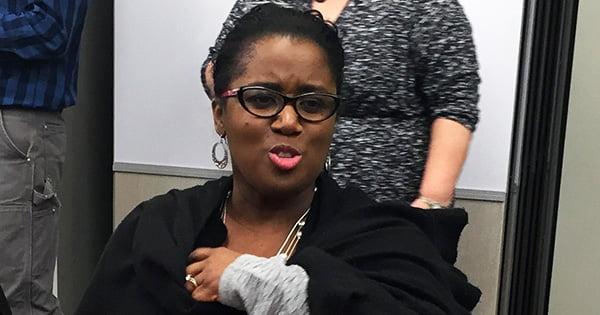Meet the First Ever Black Woman Judge to Be Appointed in the State of Alaska
by Kathy Grear 03/08/2019
Judge Pamela Scott Washington
Anchorage, AK — In 2010, Pamela Scott Washington made history as the first Black woman to be appointed as a judge in Alaska. Almost a decade since then, she still upholds the significance her position has in the community and how it allows her to help resolve conflicts through the justice system.
“Justice is not just done. Justice is seen. And justice is experienced,” Washington believes. And throughout her tenure, she lives by that.
As an African-American sitting on the bench in the courtroom, most people of color would express appreciation of her even as she convicts them or delivers their sentence. That is something she perceives as progress in the justice system.
“I still felt that there was some respect that someone that looked like them was actually in the courtroom, and that’s, you know, we take it for granted but there’s something about that,” Washington said in an interview with Alaska Public Media. “Justice is experienced, and so I feel like we sort of up the game of justice when the court system looks like the people we serve.”
During her childhood, she spent most of her time trying to fit in. She was on her 8th grade when they moved from New Orleans to Alaska. At that time, she wasn’t that much aware that she was a minority. Eventually, she learned to do what everyone else did, joined organizations, participated in activities, and tried to reduce the gap between the different race.
That’s when she realized that it is better to see the USA and its diverseness as a ‘salad bowl’ instead of a ‘melting pot’ which was the term more widely taught.
Washington explained that as a melting pot, it could be deemed that “people come from all over the place and they try to blend in, and if you throw everything in a pot, we all look the same.”
She, therefore, believes that “true diversity is more like a salad bowl, where you can have all sorts of ingredients… and together these flavors are pretty amazing. But you can still see each ingredient, so you don’t have to lose who you are and what you bring to the table just to really be a part of the big whole.”
However, she had been honest in stating that even though people have been more aware of issues in race and inequality in Alaska and in the whole United States, it wasn’t enough to really unite people.
“I think the good thing about it is, is what’s happening has made us aware and take note and be deliberate about how we move forward and how we engage with our brothers and sisters and people in the community, like us and not like us,” she said.


